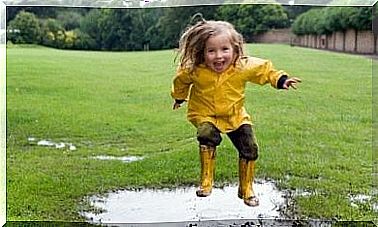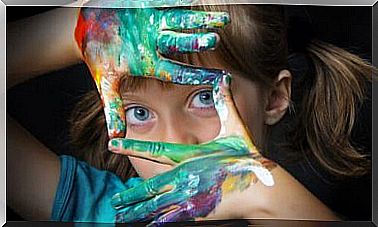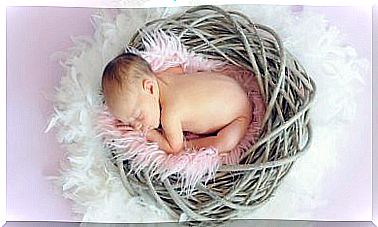My Child Is Afraid Of Birds: What To Do?
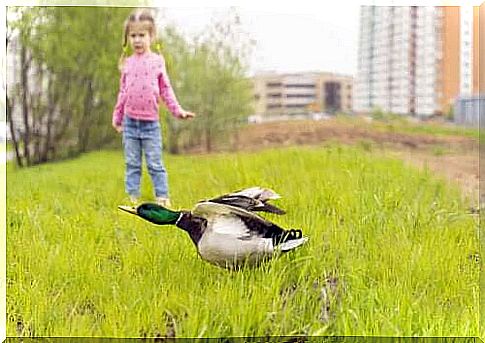
Fear of animals is a common fear during childhood, especially between 2 and 4 years old. At these ages, it is normal for children to consider certain harmless animals to be dangerous and threatening, as they are still getting to know the world around them. Many children develop, for example, a fear of birds. Is this the case with your child? Why is this happening? How can you help him? Next, we’ll answer all these questions.
But before addressing this issue, it is first necessary to explain that the fear is an emotion that allowed humans to survive over the years, as it takes us to shun risk. Therefore, fear should not always be interpreted as something negative, as it is often an evolutionary and adaptive issue.
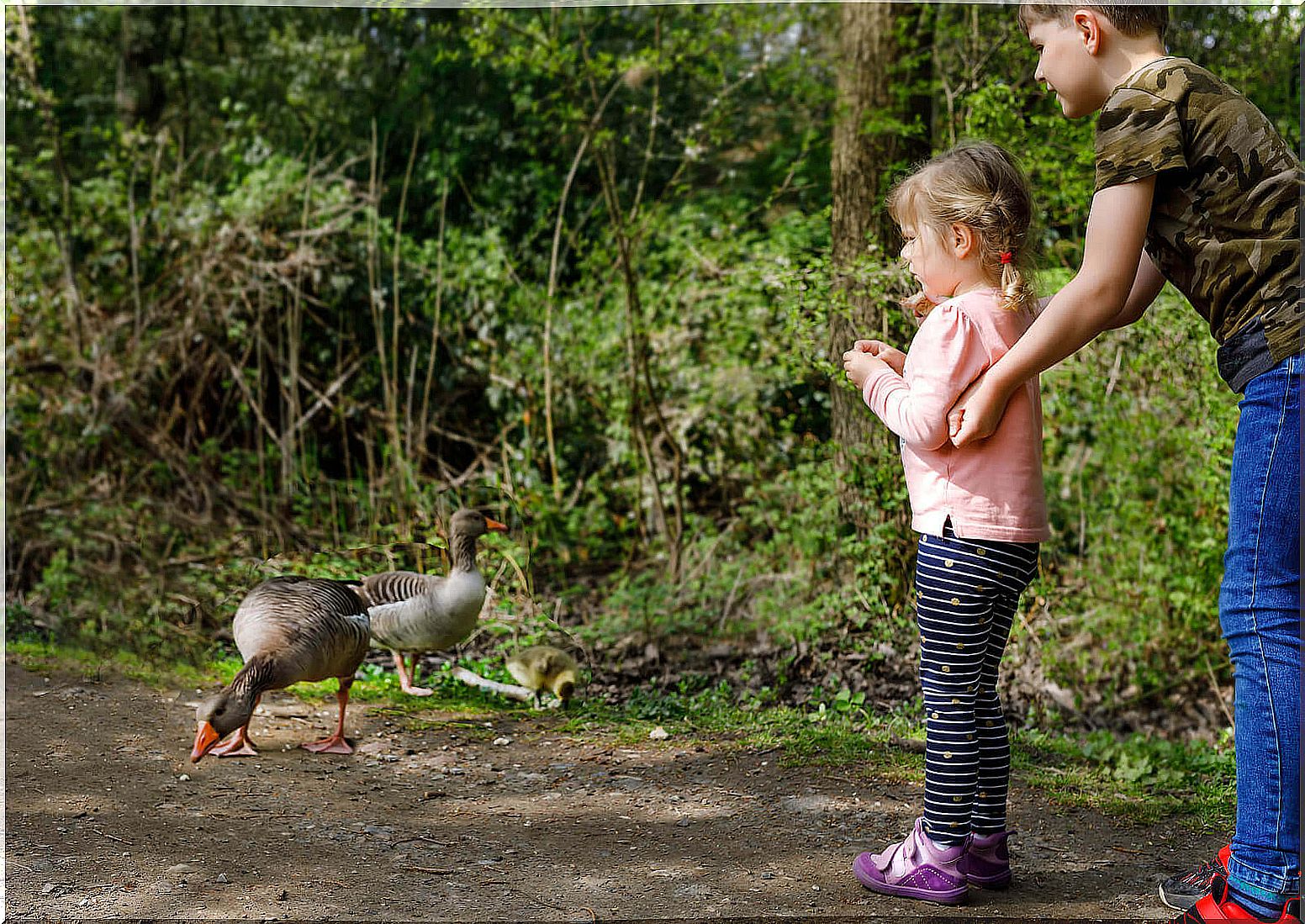
My child is afraid of birds: what should I do?
Fear of birds usually occurs in some children who have observed or experienced aggressive or violent behavior by a bird. However, there can also be many other reasons for developing this irrational fear.
Regardless of the cause, if your child is afraid of birds, the first thing you should do to help work this overcoming is not to avoid or run away from spaces where these animals are present, such as parks, viewpoints, beaches, etc. Maybe your goal is just to protect your child, but if you teach him to run away and not face his fears, he will never be able to solve the problem.
Do you want to know what else you can do to help your child deal with his fear of birds? Along the following lines, let’s give you some ideas.
don’t lose your cool and act normally
Above all, don’t lose your cool. Remember that you are the adult and must lead by example. You will certainly have to witness uncontrolled crying, tantrums, and even episodes of anxiety on your child’s part when he is faced with a situation in which he is afraid of birds.
In these cases, it is necessary to have patience and act in a completely normal way, to convey to the little one that you are not facing a dangerous situation and that the birds will not harm him.
Be empathetic with your child and show understanding of the situation
It is important that your child feels that you are their main pillar of support, that they can tell you about their thoughts and emotions about the subject without feeling ashamed or judged by it.
Show understanding, after all, who is not afraid? And remind him that you’re not going to allow him to expose himself to situations where he could be in real danger, that you’re going to protect him and make sure nothing bad happens to him.
Seek expert help to treat fear of birds.
If you think your child’s fear of birds is excessive and disabling, it may not be a simple evolutionary fear, but a phobia called ornithophobia. In this case, we recommend that you seek professional help and contact a psychologist who specializes in the treatment of childhood phobias, as the professional can help your child overcome this irrational fear through psychotherapy.
What is ornithophobia?
Ornitophobia is the term used to describe a specific type of phobia consisting of feeling extreme, irrational, and disabling fear of birds. Thus, people who have ornithophobia, when they see themselves in front of birds, may present the following symptoms:
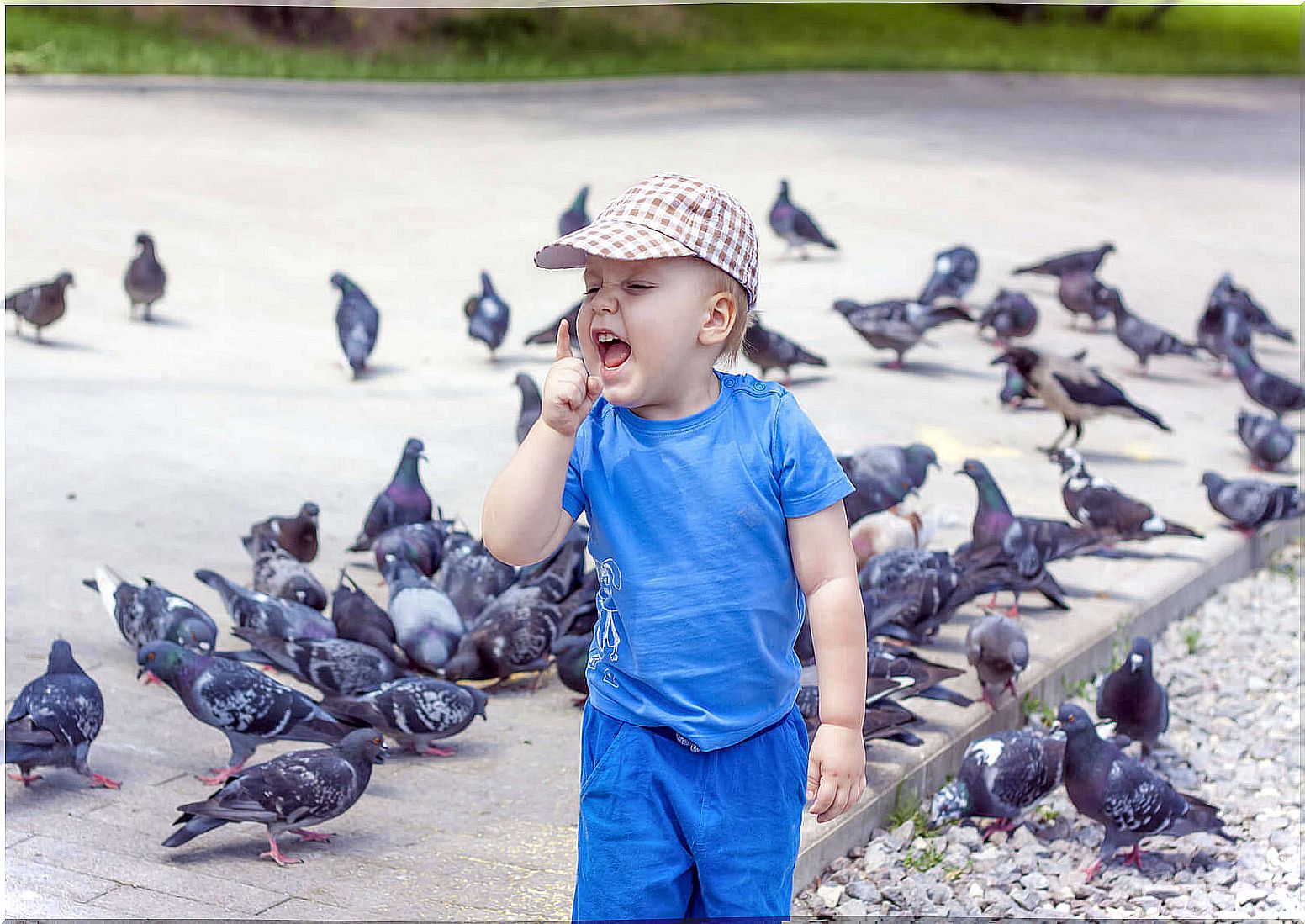
- Loss of control.
- Anxiety or panic attacks.
- Difficulty breathing.
- Dizziness.
- Excessive sweating.
- Nausea.
- Tremors.
- Heart palpitations.
The Importance of Treating Fear of Birds
Without proper treatment, fear of birds can persist into adulthood and can become a serious, life-limiting problem. So don’t consider it a trivial matter.
If you detect that your child suffers from this fear, it is important to follow the tips explained above so that your child can lead a normal life as quickly as possible, without feeling terrified every time they are in front of a bird.

